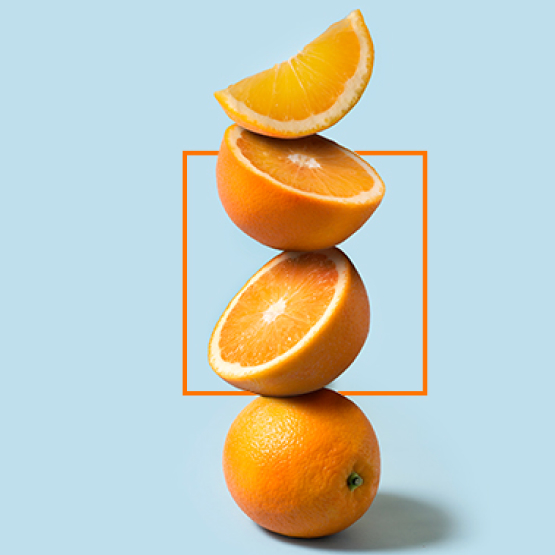We use first and third-party cookies for analytical and statistical purposes and to show you personalised advertisements based on a profile compiled from your browsing habits (e.g. pages visited). For more information, click on our Cookie Policy. You can accept all cookies by pressing 'Accept', you can reject all cookies by pressing 'Reject', or you can customize your choice by pressing 'Manage'.
What is a PIAS?1
PIAS (Individual Systematic Savings Plans) are long-term life-savings insurance plans intended to complement the state pension through the collection of an income when retirement age is reached.
Our Dynamic Management PIAS is a long-term saving alternative through investment funds combined with life insurance to which amounts of money are contributed on a regular basis and which can be received in the form of capital or an annuity at the end of the plan. And if you choose the life annuity you will not pay tax on the returns.
PIAS Dynamic Management: A unit linked life-savings insurance policy. This product may entail losses on the capital invested. because it is the policyholder who assumes the risk of the investment.
More services, more advantages

YOU CHOOSE WHERE AND HOW TO INVEST
See the range of portfolios and investment funds available. You can change them whenever you want, free of charge and without any tax implications.
INVESTMENT TYPES (54.3 KB)Do you have any questions about PIAS?
See Terms and conditions Terms and conditions
Age
You can contract an Individual Systematic Savings Plan (PIAS) if you are of legal age.
Amount
The initial minimum premium is €2,000, with subsequent minimum premiums of €50.
Liquidity
You can perform a full or partial redemption without any type of penalty 15 days after the insurance comes into effect. If you want to perform a partial redemption, you must keep a minimum of €600 in your PIAS.
Ownership of the insurance
To access the tax benefits offered by PIAS, the policyholder, insured person and beneficiary of the income must be the same person.
Beneficiaries
As this is an insurance policy, you can designate the person or persons who are the beneficiaries in case of death. If you do not do this, the beneficiaries will be your legal heirs.
Taxation
You have to consider two periods when assessing the taxation of a PIAS: the savings or capitalisation period, and the period when you receive the benefit.
During the savings or capitalisation period:
the premiums paid are not deductible but the accumulated returns are not taxable. Neither do any redistributions amongst the baskets or forms of investment that you might make during the life of your plan have any fiscal impact.
When you receive your benefits:
one of the features of PIAS is that you can receive your benefits in two ways.
-
Setting up an annuity
You can choose this option if: the annual contributions do not exceed €8,000; the accumulated amount does not exceed €240,000; more than five years have passed since the first contribution; and the beneficiary of the insurance is the policyholder and the insured person. In this case, the returns generated by your PIAS have no tax impact. In addition, the income you receive will be treated as capital gains, and the rate at which this is taxed in income tax depends on the age of the insured when they arranged the PIAS:
- Under 40: 40% of payments received are subject to tax
- Between 40 and 49: 35% of payments received are subject to tax
- Between 50 and 59: 28% of payments received are subject to tax
- Between 60 and 65: 24% of payments received are subject to tax
- Between 66 and 69: 20% of payments received are subject to tax
- Over 70: 8% of payments received are subject to tax
-
If an annuity is not set up
In this case, the income generated is not tax exempt, and is taxed as capital gains for personal income tax purposes (IRPF), with the corresponding withholdings.
Tax in the event of death
In the event of death of the insured person, in addition to the general deductions for kinship, the PIAS offers an additional deduction of €9,159.48 for each beneficiary who is a spouse, ascendant or descendant.
Fees
PIASs have an annual fee of 0.10%, which is deducted monthly from the accumulated fund.
IMPORTANT INFORMATION
- Yearly report
-
Show/Hide legal text1 Systematic Individual Savings Plan (PIAS) of Bankinter Seguros de Vida S.A. de Seguros y Reaseguros marketed and sold by Bankinter, S.A. as the related BANCASSURANCE OPERATOR, with registered office at Paseo de la Castellana 29, 28046 Madrid, entered in the Madrid Companies Register at volume 1857, sheet 220, page 9643, with Tax ID Number A-28157360 and entered in the Special Administrative Registry of the General Directorate of Insurance and Pension Funds, attached to the Ministry of the Economy and Finance (Paseo de la Castellana 44, 28046 Madrid) (http://www.dgsfp.mineco.es) under code OV-0028. The bancassurance operator has taken out the civil liability insurance required under Article 152 of Royal Decree-Law 3/2020 of 4 February on urgent measures incorporating into Spanish law several directives of the European Union concerning public procurement in certain sectors; private insurance, pension plans and funds, taxation and tax litigation. This is a high-risk financial product and its value may rise or fall. The bancassurance operator has entered into insurance agency agreements with the institutions listed here. The key investor information document is available at https://www.bankinter.com/banca/ahorro-inversion/inversion/plan-de-ahorro.
-
Show/Hide legal text2 Bankinter Seguros de Vida S.A. de Seguros y Reaseguros Life Risk Insurance offered by Bankinter, S.A. as the related BANCASSURANCE OPERATOR, with registered office at Paseo de la Castellana 29, 28046 Madrid, entered in the Madrid Companies Register under Volume 1857, Sheet 220, Page 9643, with Tax ID Number (CIF) A-28157360 and entered in the Special Administrative Registry of the General Directorate of Insurance and Pension Funds, belonging to the Ministry of the Economy and Finance (Paseo de la Castellana 44, 28046 Madrid), http://www.dgsfp.mineco.es, under the bancassurance operator code OV-0028, has taken out the civil liability insurance required under Article 152 of Royal Decree-Law 3/2020 of 4 February on urgent measures incorporating into Spanish law several directives of the European Union concerning public procurement in certain sectors: private insurance; pension plans and funds; tax and tax litigation. The bancassurance operator has entered into insurance agency agreements with the institutions listed here.
-
Show/Hide legal text3 5% - 2% regular contributions promotion: To qualify for the promotion you must hold a Salary, Pension, Business, Non-Salary, Youth Salary Account, Tú y Yo, Broker or Current account with Bankinter and make a regular contribution from that account of at least €50 per month to an investment fund, pension plan, EPSV or individual systematic savings plan (PIAS), or alternatively allocate €250 per month to the purchase of shares. The promotion applies exclusively to product lines where you do not currently have regular contributions and have not had them in the last 12 months. If you fail to make any of these regular minimum contributions you will not receive the bonus. First year: 5%. Second year: 2%. Monthly settlement on the total accumulated net balance: sum of regular contributions made to investment funds, pension plans, EPSVs, PIAS and shares, minus redemptions from investment funds with declared regular contributions and external transfers of investment funds, pension plans, EPSVs, PIAS and shares with declared regular contributions. The maximum bonus-bearing balance is €1,000. The following is an example for a regular monthly contribution of €100 to an investment fund over the course of 24 months. Total first year bonus: €31.26 gross. Total second year bonus: €20.04 gross.
-
Show/Hide legal textBankinter Seguros de Vida, SA, de Seguros y Reaseguros, sold through Bankinter, S.A. as the related BANCASSURANCE OPERATOR, with registered office at 29 Paseo de la Castellana (28046 Madrid), recorded under Volume 1857, Folio 220, Page 9643 of the Madrid Companies Register, holder of TIN A-28157360 and registered with the special administrative registry of the General Directorate of Insurance and Pension Funds at the Ministry of the Economy and Finance (44 Paseo de la Castellana, 28046 Madrid), http://www.dgsfp.mineco.es, under the bancassurance operator code OV-0028, has taken out the civil liability insurance required under Article 152 of Royal Decree-Law 3/2020 of 4 February on urgent measures, which incorporates into Spanish law various directives of the European Union concerning public procurement in certain sectors: private insurance, pension plans and funds, and taxation and tax litigation.
The bancassurance operator has entered into insurance agency agreements with the institutions specified in the following link.
-
Show/Hide legal textBasic information about data protection. Bankinter Seguros de Vida, S.A de Seguros y Reaseguros will process your data for the following purposes: (i) in compliance with legal obligations; (ii) for the comprehensive and centralised management of your insurance contract; (iii) to ask doctors and healthcare providers to supply the data and medical history required to prepare the contract and protect your interests; (iv) to analyse and develop profiles to ensure the correct execution of the insurance contract; and (v) to contact you with information about products or services that may be of interest to you since they are similar to the ones you already have with us. To be able to inform you about the products and services mentioned above, we will analyse your personal data to create a profile that will allow us, by whatever channel we may use to reach you, to tailor our commercial announcements as closely as possible to your needs, tastes and preferences. Please also refer to the additional information about data information published by Bankinter Seguros de Vida, S.A de Seguros y Reaseguros.
